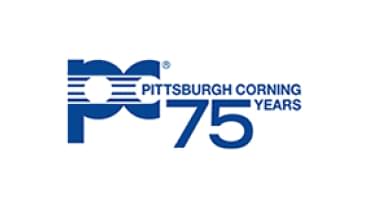Pittsburgh Corning Corporation
Pittsburgh Corning Corporation bought and operated the Unibestos product line, which included pipe insulation and insulation block made from raw amosite asbestos. The company filed for bankruptcy in 2000 and later set up a trust fund to compensate victims of asbestos exposure.

Pittsburgh Corning and Unibestos
In 1962, Pittsburgh Corning entered into a purchase agreement with UNARCO Industries Inc. to buy the Unibestos product line, which contained such items as pipe insulation and insulation block.
The products in the Unibestos line were manufactured from amosite asbestos imported from South Africa. The natural asbestos was partially broken down into fibers at the mines, and then shipped to UNARCO’s plants for further fiberizing and bonding with inorganic binders and fillers.
From 1964 to 1971, Pittsburg Corning employed industrial hygiene engineering consultant Morton Corn to evaluate the conditions at plants in Tyler, Texas, and Port Alleghany, Pennsylvania. Corn found both plants posed significantly hazardous exposure to asbestos, and he recommended engineering control measures to lessen the risk. However, the majority of his recommendations were not put into effect.
In 1972, Pittsburgh Corning ceased production and distribution of the insulation and dismantled and buried the equipment from the Tyler plant.
The company filed for bankruptcy in 2000 and emerged from it in April 2016. It was acquired by Owens Corning Inc. in July 2017 for $560 million.

Gain access to trust funds, grants and other forms of compensation for you or your loved ones.
Get Help NowBankruptcy and Pittsburgh Corning Asbestos Trust
Pittsburgh Corning filed for Chapter 11 bankruptcy protection in 2000, according to the Pittsburgh Post-Gazette. After years of pending appeals, the U.S. Bankruptcy Court for the Western District of Pennsylvania confirmed the plan in May 2013.
The Pittsburgh Corning Asbestos Personal Injury Settlement Trust was established as part of a multibillion-dollar settlement of asbestos claims. Funding for the trust began in the first half of 2016. The trust began accepting claims on March 17, 2017.
The trust’s payment percentage, which is the percentage the trust will pay for a claim’s value in order to keep funds in the trust, is 30.1%, which is considered high compared to other asbestos trusts.
Pittsburgh Corning Asbestos Lawsuits and Litigation
The most notable asbestos-related litigation involving Pittsburgh Corning came in 1997 when 447 former employees of the Tyler plant filed a class-action lawsuit. That claim was settled out of court for $20 million.
As part of the settlement:
- Pittsburgh Corning paid $8.1 million
- UNARCO paid $1 million
- Cape Industries (the asbestos suppliers) paid $5.2 million
- U.S. government (a large purchaser of Unibestos) paid $5.7 million
During the trial, Dr. Richard Gaze, the chief scientist for Cape Industries, testified that he consulted with Pittsburg Corning in 1961 — prior to the Unibestos purchase — about the manufacturing process and the necessary precautions that had to be implemented to protect plant employees from asbestos exposure.
He also testified that he consulted with the company about safety procedures over the next ten years.
David Simpson worked on a steam piping system using Pittsburgh-Corning’s Unibestos, a thermal insulation pipe containing amosite asbestos fibers. Doctors diagnosed Simpson with mesothelioma, which claimed his life in 1988. His wife Helen received $2.3 million from Pittsburgh-Corning and other asbestos insulation manufacturers.
From 1955 to 1968, Robert Dunham worked for the Pittsburgh-Corning Corporation as a chemical operator, using insulation and asbestos-containing materials. Dunham developed lung cancer from asbestos exposure and died in 1997. His widow took his case to court in Texas, winning $19.3 million in compensatory and punitive damages.
Industries & Occupations That Used Unibestos
Unibestos was used as pipe insulation by a number of different residential and commercial construction applications. In addition to plant workers who manufactured Unibestos, occupations at risk include any jobs that required the handling, application or removal of the insulation product.
The insulation had to be removed and then reinstalled each time repairs were made on components that were covered with it. Handling the insulation this frequently would have caused a significant amount of airborne asbestos fibers to be inhaled.
Additional products in the Unibestos line included:
- Cements and finishes
- Metal mesh blankets to fit insulation
- Asbestos packing and gaskets
- Asbestos textiles
The asbestos was shipped from South Africa in gunny sacks without warnings about the dangers of asbestos exposure. Plant workers removed the raw asbestos from the sacks with their hands.
Although the workers wore respirators, after an hour, the respirators became clogged with asbestos dust.
Recommended Reading


